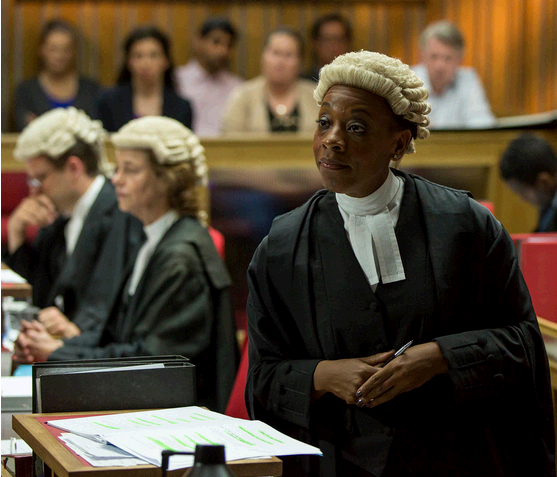Weekly Notes: legal news from ICLR – 6 March 2015
This week’s salmagundi of legal news and events from home and abroad includes an update on parties’ election promises on law and justice, a look at some recent legislation, a response on judicial diversity, and a TV dramatist’s riposte to his pedantic legal critics. Other recent publications of interest: Dinah Rose QC, What’s the… Continue reading about Weekly Notes: legal news from ICLR – 6 March 2015
This week’s salmagundi of legal news and events from home and abroad includes an update on parties’ election promises on law and justice, a look at some recent legislation, a response on judicial diversity, and a TV dramatist’s riposte to his pedantic legal critics.
Other recent publications of interest:
- Dinah Rose QC, What’s the Point of the Human Rights Act? (Politeia pamphlet)
- Internet Newsletter for Lawyers, March/April edition (PDF)
Election watch
Khan says he can’t; Greens reckon they can
We promised to examine each of the main parties’ promises on the justice system in advance of the General Election set for May 2015, but hitherto we have been hampered by a dearth of published prospectuses (or prospecti, if you prefer). So the only party whose promises have been examined till now has been the not very serious contender, FUKP (see Weekly Notes – 23 January ).
 This weekend, however, the Greens are holding their conference and as a result we’ve heard a bit more about their plans should they ever achieve office, or a corner in someone else’s office. It’s probably best to ignore the ranting and raving which Green politicians seem to bring out in the media, such as this article in the Telegraph (The Green Party is a Looney Tunes alliance of druids and trots)
This weekend, however, the Greens are holding their conference and as a result we’ve heard a bit more about their plans should they ever achieve office, or a corner in someone else’s office. It’s probably best to ignore the ranting and raving which Green politicians seem to bring out in the media, such as this article in the Telegraph (The Green Party is a Looney Tunes alliance of druids and trots)
In fact, their policy on criminal justice appears to be quite holistic and joined up, just not very practicable in what might inconveniently be termed the real (ie media-dominated) world.
Under the heading Crime and Justice they set out a number of “Principles” including:
“Given that crime should be seen as partly caused by social factors, it cannot be adequately addressed solely in terms of criminal justice and policing policy.” Instead, they say, “We will introduce the principle of “restorative justice”, which while denouncing the crime, deals constructively with both the victim and the offender.”
Under “Policies”, they propose a two-fold strategy – first to reduce crime and, secondly, to respond to it. Separate ministries would take care of these two functions.
For reducing crime, they propose better youth facilities, open spaces, street lighting and other “environmental” improvements; plus support for caretakers, attendants and staff on estates, railways, parks etc. Wider recruitment of police, use of part time officers, better complaints procedures and an emphasis on “community policing” are also proposed. All of these seem sensible and could quite easily be proposed by almost any political party prepared to spend a bit of taxpayers’ money on benefitting the public (rather than lining tax dogers’ pockets). Even “Dave” was once accused of hugging hoodies, before he got into office and decided tough was the new love.
In terms of dealing with such crime as this approach could not prevent, the policies become a little more wishful in their thinking, perhaps. They include the idea of “mediation” between perpetrators and victims, or with community representatives; plus various forms of reparation by offenders or (in the case of hate crimes) training to get them to rethink their attitudes. All of this sounds deeply wishful, but is it really so outlandish? Both the current government and the opposition have put forward various forms of “victims’ agenda” and in 2012 the Ministry of Justice put out a Restorative Justice Action Plan which specifically envisaged face to face encounters between victims and perpetrators.
The CPS has a page devoted to Restorative Justice but it’s not clear how much of it actually goes on. The most recent report on conditional cautioning, which is a common outcome of a restorative justice mediation, lists only 8 in the second quarter of 2014-15, compared to 5 in the same period in the previous year.
See also: our report on Restorative Justice Week 2014, Weekly Notes – 21 November 2014
All this suggests the Green policies are not so Looney as the odd Telegraph journalist might think, at least not on crime. But what’s really noticeable about the Greens is their apparent lack of policies relating to civil justice and family law: I could find nothing directly relevant on their website. This is a serious omission.
Labour: no restoration of legal aid
 After months of radio silence on the topic, Labour’s shadow Lord Chancellor, Sadiq Khan, this week finally admitted that Labour cannot (and therefore will not) reverse Tory legal aid cuts.
After months of radio silence on the topic, Labour’s shadow Lord Chancellor, Sadiq Khan, this week finally admitted that Labour cannot (and therefore will not) reverse Tory legal aid cuts.
What he/they could do, he said, is repeal some of the legislation which has not only proved unpopular with the legal community but has itself been subjected to legal scrutiny and found wanting: notably the “reforms” to the procedure for judicial review itself. Khan was interviewed by the Guardian on 2 March. He said he would also prioritise support for victims of domestic violence, but he said he could not reinstate £600m of legal aid cuts imposed by the government. One assumes he would very much like to, but hasn’t the budget.
Among his other plans are to expand the scope of Freedom of Information requests to enable citizens to quiz private companies that perform public functions, such as G4S, Capita, et al.
On Labour’s website, in advance of the full manifesto, there’s a document called Changing Britain Together (PDF), which includes:
- Proposal for a Violence against Women and Girls Bill and the establishment of a Commissioner on domestic and sexual violence
- Enact Britain’s first Victims’ Law to put victims at the heart of justice system.
- Introduce legislation to outlaw the discrimination and abuse of members of the Armed Forces.
- reversing as much as possible of the Government’s privatisation of the probation service.
- Reform the employment tribunal system to ensure workplace justice is affordable
The last point suggests a reversal or relaxation of the new tribunal fees regime which has caused the number of claims to plummet and a government minister to crow to business about how well it was “cutting red tape” – see last week’s Weekly Notes.
Legislation – or Nudgislation?
Enactments of the “bleedin’ obvious” as a “signpost to the courts”
Poor old SARAH – she’s come in for a lot of stick. I’m talking about the Social Action, Responsibility and Heroism Act 2015, which finally made it onto the Statute Book last month and should come into force (in England and Wales) in April. This Act applies, under section 1,
“when a court, in considering a claim that a person was negligent or in breach of statutory duty, is determining the steps that the person was required to take to meet a standard of care.”
In such circumstances, the court “must have regard to” whether the person alleged to be in breach of duty was
- “acting for the benefit of society” (s 2);
- “demonstrated a predominantly responsible approach” towards others’ safety (s 3);
- “acting heroically by intervening in an emergency to assist an individual in danger” (s 4).
It is not clear whether these are cumulative or alternative conditions. For example, you might act quite irresponsibly in being heroic, and without realising it do something not at all beneficial to society. But in any event, they are, as Lord Pannick observed when the Bill was being debated in the Lords, a statement of the “bleedin’ obvious” (citing Fawlty Towers as a source)
“I find it very difficult to believe that, if enacted, it is going to make any difference whatever to any case that becomes before the courts.”
Nevertheless, the Bill was defended by ministers, including Lord Faulks, as a means of bringing a measure of “common sense” to the world of tort litigation, and “to tackle unjustified and dubious claims”.
The Lord Chancellor, Chris Grayling, called it “a signpost from parliament to the courts”. This suggests it is not really meant to be treated as a piece of statute law, more a sort of parliamentary practice direction. Or even an item of street furniture. (If one needed a signpost, by the way, it would point from Westminster Square up Whitehall, round Trafalgar Square, and along the Strand to the Royal Courts of Justice. Or you could just get a No 11 bus)
Our word for this kind of legislation is “nudgislation” – nothing new, just a poke in the right direction. It may have its uses, but seems a bit of a waste of the elaborate and expensive parliamentary machine. “Frivoledge” might be a less respectful portmantau word.
For a more detailed consideration of this new Act and another recent enactment affecting personal injury claims, the “fundamentally dishonest” claimant and “inducement” to claim provisions in Part 3 of the Criminal Justice and Courts Act 2015, see Catriona Stirling, of Cloisters Chambers, on their blog. Two key legislative reforms to Personal Injury law due
Judicial diversity
Judicial Appointments Committee responds to Bindman & Monaghan report
Last november Sir Geoffrey Bindman QC and Karon Monaghan QC delivered the final report on judicial diversity, Accelerating Change, in which it made a number of recommendations intended to address the lack of women and Black, Asian and ethnic minority (BAME) judges in the senior judiciary which it perceived as undermining the democratic legitimacy of the judicial system.
See also: UKSC blog
The JAC has now responded indicating where and how it intends to implement the recommendations.
Legal fictions
Did lawyers take too narrow a view of Broadchurch’s heresies?

Chris Chibnall, scriptwriter of the ITV drama series Broadchurch, has addressed what he calls “Legalgate”. The second series took what the Guardian called a “hammering” from laywers who, it said (relishing an opportunity to picture an inappropriate gavel), were “unhappy at the ITV drama’s unrealistic courtroom scenes”. Gaffes identified by pedants included legal arguments taking place in front of the jury, the judge wearing the wrong wig, defendants being allowed to choose their own barrister, and free parking outside the courthouse (the idea!).
Chibnall says he took advice from a “respected police adviser” and “highly qualified, experienced and practising members of the legal profession”.
Every writer has compressed time and procedure, and used clarifying dialogue. That’s not a scandal: it’s a legitimate dramatic technique. Drama is not a literal portrayal of events. It’s a depiction, it’s impressionistic.
Coming to his defence, writer and broadcaster Mark Lawson opined that fiction was not fact and could be realistic without being pedantic:
Chibnall favours long dramatic dialogues, the rhythms of which would be ruined if, for example, the courtroom kept being cleared for legal argument in the absence of the jury.
If, like the present writer, you were put off even watching the show because of the risk of rubbernecking a carcrash and tweeting about it with mock outrage, perhaps you were spared a lot of angst. But if curiosity has now got the better of you, you can still watch the last 3 episodes free on itvplayer. or you can stream it via Amazon Prime (£).
For a spoiltastic recap of the whole series, Telegraph episode guide
Legal Aid regulations unlwful
Judicial review rebuff for Lord Chancellor
An amendment to the legal aid scheme made by the Civil Legal Aid (Remuneration) (Amendment) (No 3) Regulations (SI 2014 / 607) which introduced what could ‘broadly be described as a “no permission, no fee” arrangement’ for making a legally aided application for judicial review was inconsistent with the purposes of the Legal Aid, Sentencing and Punishment of Offenders Act 2012, the Divisional Court declared, in Ben Hoare Bell Solicitors and others v The Lord Chancellor [2015] EWHC 523 (Admin) because it extended beyond the circumstances which can be seen as rationally connected to the stated purpose given for its introduction’.
Source: Gazette Grayling JR amendment ‘unlawful’ – High Court
International Section
Burma / Myanmar
Student protest march banned
Police in Myanmar on Monday prevented around 200 students from marching to protest a new law that they claim limits academic freedom. The new law was passed by parliament in September and puts all policy and curriculum decisions in the hands of mostly government ministers, reports The Jurist.
France
Court can hear claim against Facebook
A Paris court has ruled that it has the legal authority to judge a case against Facebook, despite an exclusive jurisdiction clause requiring claims to be brought in California, according to the Guardian.
The claimant is a teacher who posted an image of a 19th-century picture by Gustave Courbet, The Origin of the World, depicting a vulva, after which Facebook blocked his account. He wants to sue Facebook in the French courts, but Facebook sought to rely on an exclusive jurisdiction clause requiring complaints about blocking of accounts to be brought in California, where the site is based. But the French court ruled that condition “abusive” and decided that it had jurisdiction to hear the claim.
Facebook said it noted the judgment and was considering its response. The court will hear the case on 21 May.
Saudi Arabia
Rape victim sentenced to 200 lashes
The victim of a violent gang rape has been sentenced by a Saudi Arabian court to 200 lashes and six months in jail for the crimes of speaking to the press and indecency, reports Breitbart. The report explains:
According to Sharia Law, a Saudi Arabian woman must be accompanied by a male guardian at all times in public, something the 19 year old victim did not obey when she went to meet a friend.
She was convicted of violating the Kingdom’s religious diktats on segregation of the sexes and sentenced to 90 lashes. The rapists were given lenient custodial sentences.
the woman’s lawyer appealed to the Saudi General Court. But instead of choosing to overturn the punishments for being the victim of a crime, the court more than doubled her sentence. At the same time, they also roughly doubled the prison sentences for the seven men convicted of raping her, according to Saudi news outlets.
Blogger sentenced to 1,000 lashes may now face death penalty
Judges in Saudi Arabia’s criminal court want Raif Badawi, who has already been sentenced to 10 years in prison and 1,000 lashes for criticising the country’s clerics through his liberal blog, to undergo a re-trial on the charge of apostacy, on which he was initially acquitted.
He has so far only been given 50 lashes: the injuries having failed to heal, further weekly instalments have been postponed. It was thought the death of King Abdullah might have prompted a rethink – given the international outcry that the original sentence was greeted with – but it was not anticipated that that rethink would constitute a worsening of Badawi’s treatment for, effectively, exercising his right to free speech.
This only deepens the hypocrisy demonstrated by Saudi Arabia in sending its ambassador to France out onto the streets of Paris in support of the #JeSuisCharlie rally for free speech and against its pseudo-religious silencers.
The story so far: Weekly Notes –16 January
Latest updates: The Independent; Guardian
United States of America
Hip Hop hype
The American hip hop band Wu-Tang Clan have resorted to a somewhat extreme and contrary “creativity” stunt in an effort to promote their latest album, reports The IPKat, in a recent blog post, Wu-Tang Clanger. They have released an album in an edition of one – only one person can buy it, and none of the content can be released or otherwise exploited for the 88-year copyright period. Apparently Jean-Michel Jarre tried the same stunt some years ago, and it’s been done (with more logic) with books or short stories before now. But if the music is worth hearing, wouldn’t you want to let people hear it? This seems more of an anti-art and pro-money statement. Bidding has reached the millions.
As 10cc once sang: “Art for Art’s sake / Money for God’s sake”.
Okay, and with that story done, it’s a rap. (sorry.) Enjoy the week ahead, and don’t forget to check out our weekly Case Law Updates. Click here for last week’s alert.
Don’t forget, either, to vote in our 150 Years of Case Law on Trial poll, about to commence its second period, from 1915 to 1945. Jazz age flappers, suffragettes, fascism and communism – it was a period of social and political turbulence, bounded by two world wars. And in the courts, a number of landmark cases which still resonate to this day.
This post was written by Paul Magrath, Head of Product Development and Online Content at ICLR. It does not necessarily represent any views of ICLR as an organisation.